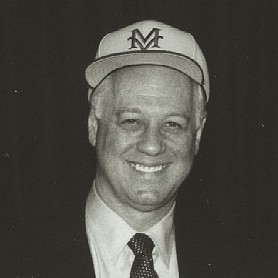The Juniper Park Civic Association is proud to announce that New York City Comptroller Alan G. Hevesi has been selected as “Man of the Year” for 2000. After serving as our Assemblyman for 22 years, where he wrote 108 laws, Mr. Hevesi began serving as New York City's forty-first Comptroller in January 1994. Reelected in 1997, Hevesi has renewed his commitment to eliminating waste and fraud in government and making agency operations more efficient. He has made enormous strides in fulfilling this commitment and in strengthening the City's fiscal condition with a number of important initiatives, several of which have earned the Office prestigious awards for innovations in government and excellence in financial reporting.
One of the Comptroller's primary responsibilities is to monitor the City's budget. In the first-ever study of the secondary impact of proposed budget cuts, Hevesi highlighted cuts in the fiscal year 1996 State and City budgets that would cost more than they saved; as a result, some of the harmful cuts were eliminated. The Office has published a series of similar reports assessing the impact of proposed cuts and recommending ways to avoid or reduce them.
A staunch opponent of resorting to financial gimmicks to close budget gaps, Hevesi won a lawsuit brought against him by the Mayor in 1996 when he refused to approve a plan to sell the City's water system. The Court agreed that the proposed $2.3 billion sale, intended to close the budget gap, was illegal. Hevesi also has initiated a policy that calls for approval of debt refinancings only if the yearly cost is shown to save the City money, and the deal has no negative impact on any future budget.
Hevesi held up a proposed $2.2 billion watershed agreement among the State, City and upstate communities until he won substantial improvements. The City was under a federal Environmental Protection Agency order to filter its water at a cost of billions of dollars, unless it could reach an agreement to protect the watershed and keep New York's drinking water clean. After his analysis of the agreement identified numerous weaknesses, Hevesi negotiated to correct them-for example, getting funding for an independent study of the underlying scientific issues by the National Academy of Sciences, the nation's foremost independent scientific organization. He also pledged to monitor implementation of the agreement.
Under Hevesi's administration, the number of audits conducted by the Office has more than doubled, resulting in hundreds of millions of dollars in direct and potential cost-savings for the City. The Comptroller also urged the City's Health and Hospitals Corporation to improve its fiscal management, eliminating the need to take seasonal loans from the City in fiscal years 1994 and 1995 and yielding a savings of more than
$13 million.
A study by the Office revealed that the City and State could save up to $720 million over the next five years by competitively bidding for transportation services for handicapped preschoolers, and by reforming methods to evaluate these children and meet their special needs. The Department of Transportation has begun to competitively bid these services.
The five City pension funds, for which the Comptroller is a trustee and/or adviser, are ranked in the top quartile for performance and the bottom quartile for costs. In fiscal year 1997, the funds earned more than $8 billion over anticipated earnings projections, with returns ranging from 17.7 to 19.2 percent – far above the assumed rate of 8.75 percent, and significantly ahead of the 16.4-percent return for the median public fund in the U.S.
Hevesi's emphasis on improving enforcement of State prevailing wage law resulted in a substantial reduction in the huge backlog of violation cases, down from more than 550 on January 1, 1994 to just eight at the end of the Comptroller's first term. Employees of public works contractors have been awarded more $12 million in back pay owed them under the law, while the City has collected nearly $1 million in civil penalties and liens. Hevesi also formed an anti-corruption task force with New York's district attorneys; to date, five companies with records of illegal activities have been prohibited from doing business in the State.
The Comptroller has established affirmative claim and fraud detection programs in the bureau responsible for processing and settling claims brought against the City. By more aggressively pursuing responsible third parties in cases of damage to City property, the Office has collected more than$800,000. In addition, through reports to the Comptroller's new fraud hotline and improved investigation techniques, the Office will help the City avoid paying as much as $200,000 annually in needless costs.
To deal with the staggering number of lawsuits filed against the City each year, Hevesi's office created an optical imaging system, called OAISIS, that streamlines the cumbersome process of handling claims while cutting costs and improving efficiency. The Office has reduced its case backlog by half with this state-of-the-art automation, and can better analyze liability issues, detect fraud and settle cases early. Similar technology is being applied to contract administration and enforcement of the prevailing wage law. Expected to generate a net saving of more than $20 million over five years, OAISIS was selected in 1997 as a finalist for the Ford Foundation's prestigious Innovations in American Government Award.
In August 1998, the Comptroller released a study of the City's capital needs over the next decade. To bring the infrastructure to a systematic state of good repair, New York needs nearly $92 billion – approximately $40 billion more than is now allocated in the City's Ten-Year Capital Strategy. The report is based on a detailed analysis of current specific needs at more than 200 facilities in 18 City agencies. Some potential finding alternatives also are discussed.
Hevesi has distinguished himself as an international leader in monitoring the progress made in restitution of the assets of Holocaust survivors and victims' heirs. In 1997, he invited World Jewish Congress President Edgar M. Bronfinan to co-sponsor a conference on the issue, at which hundreds of public finance officers from around the nation gathered to hear representatives of the Swiss and U.S. governments, local elected officials, attorneys for plaintiffs, and Holocaust survivors. The subsequent threat of sanctions by state and local finance officials coordinated by Hevesi and the Executive Monitoring Committee formed at the conference – was critical in convincing Swiss banks to agree to a $1.25 billion settlement. The Office publishes a newsletter on continuing international monitoring efforts.
Before his election to Comptroller, Hevesi was a veteran member of the New York State Assembly, where he developed a background in government budgetary and financial issues, launched with his 1974 appointment to the Ways and Means Committee. In his 22 years as a legislator representing Queens, including parts of Middle Village, Elmhurst and Maspeth, Hevesi wrote 108 laws and established himself as a champion for affordable health care, education reform, and the rights of people with disabilities. He chaired the Subcommittee on Health Care, served on the Committee on Health and the State Task Force on the Disabled, and was instrumental in passing landmark legislation that cracked down on Medicaid fraud and nursing home abuses.
Hevesi has written a number of articles and books; for example, he is co-editor of The Politics of Urban Education (Praeger, 1969) and author of Legislative Politics in New York State: A Comparative Analysis (Praeger, 1975). A member of the Queens College faculty from 1967 through 1993, he is an adjunct professor at Fordham Law School and Columbia University's School of International and Public Affairs. He holds a B.A. from Queens College and a Ph.D. in Public Law and Government from Columbia University.
Hevesi was bom on January 31, 1940 and raised in Queens, where he lives with his wife, Carol. Their three children, Laura, Dan and Andrew, also are residents of Queens.



